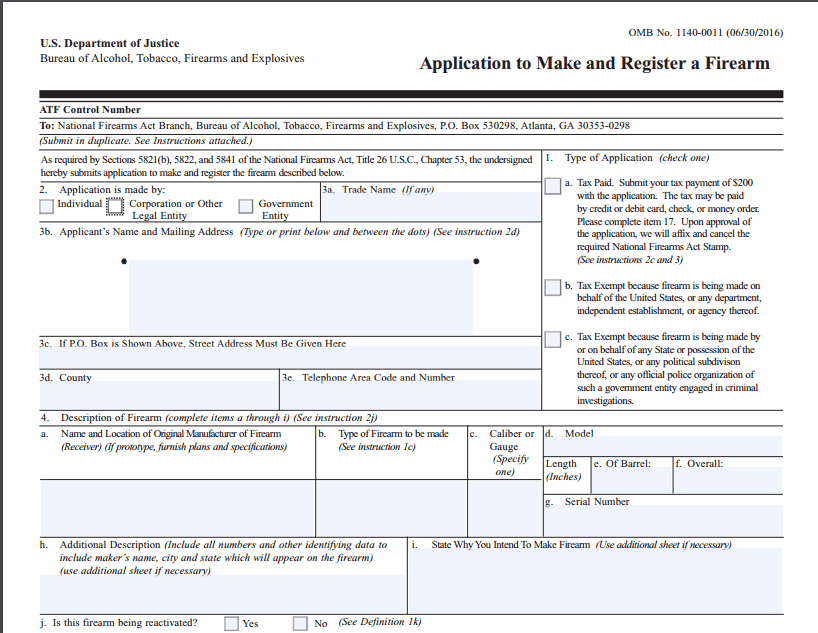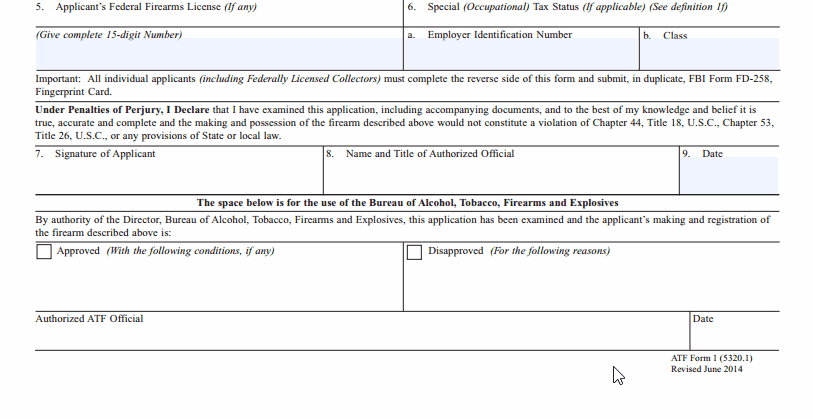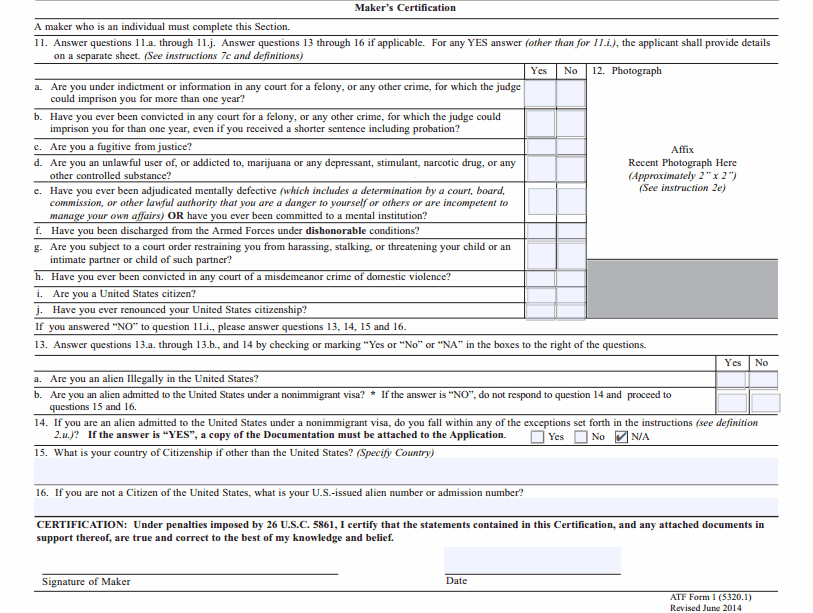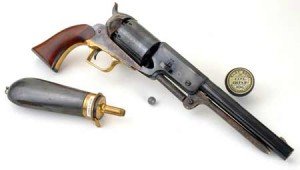 The only thing more powerful than a giant bureaucracy is the inventiveness of free enterprise.
The only thing more powerful than a giant bureaucracy is the inventiveness of free enterprise.
Therefore, it is no surprise that the firearms industry is already hard at work minimizing the impacts of 41F on the use of NFA trusts.
To understand what the industry is doing, let’s first let’s take a quick look at what exactly changed as part of 41F. After all, there is a lot of misinformation concerning 41F that is being spread by word of mouth and the internet.
As a trust applicant, what exactly will you have to do after 41F that you didn’t have to do before?
1) Each ‘responsible person’ (more about that later) of the trust will have to complete and submit a Form 5320.23 (Form 23).
2) This form will need to be accompanied by fingerprints of the responsible person taken on 2 FBI (FD-258) fingerprint cards.
3) This form will need to have a passport quality / size photo affixed.
4) A copy of the form will need to be sent to the CLEO of the responsible person.
That’s it. Other than that, NFA trusts will continue to offer the same usage, asset protection, and estate planning benefits as before.
So how can the industry help to alleviate the additional application burden? One answer is to provide a one-stop experience for getting fingerprinting and photos.
Silencer Shop was the first (to my knowledge) to announce such an initiative with their Kiosk System. But now that 41F is in effect, the floodgates have opened and almost all major Class 3 dealers have announced plans to offer in-store fingerprinting and photographs.
One example is SafeSide Tactical in Roanoke Virginia. Starting today they will take your fingerprints, take your photo, help you to complete the Form 23, and mail it to your CLEO, all for a nominal per-responsible-person fee.
They will offer this service to both those purchasing NFA items on a Form 4 and those building items on a Form 1. However, the fee will be discounted for those purchasing items in-store.
Green Top in Richmond has announced plans to have a Silencer Shop kiosk in-house.
While I have not had time to compile a comprehensive list, I predict that almost every single Class 3 dealer in the state will ultimately offer some form of this service.
What do I base this prediction upon?
- Industry leaders are already doing it.
- The cost for the equipment and training is negligible.
- It is an additional revenue stream
- Any dealer who does not ultimately offer this service will be at a significant competitive disadvantage.
So whether you are new to the NFA world or an experienced collector you should rest assured that an NFA Trust will continue to be the preferred method of ownership.
FAQ
Question: What are ‘responsible persons’?
Answer: There has been a lot written about this topic but as far as trusts I have developed are concerned, only the Settlor and the joint/co-trustees named on Schedule B are considered ‘responsible persons’.
Question: Does adding trustees to my trust require a Form 23 be submitted with fingerprints and photographs?
Answer: No. Not unless you subsequently file a Form 4 or a Form 1. I will be writing more about this over the next few days.
Question: Is it acceptable to the ATF for non-law enforcement to take fingerprints for the Form 23?
Answer: Yes. ON page 150 of 41F they note that
“Fingerprints may be taken by anyone who is properly equipped to take them (see instructions on ATF Form 1, Form 4, Form 5, and Form 5320.23). Therefore, applicants may utilize the service of any business or government agency that is properly equipped to take fingerprints. Depending on where the fingerprints are taken, the service may require an appointment, and appointment availability may be limited. Some businesses provide evening and weekend appointments and a number of private companies provide mobile fingerprinting services at a location chosen by the customer to be fingerprinted. Additionally, some mobile fingerprinting services offer special pricing to groups of individuals who need to be fingerprinted.”

 We have finally arrived at the final day to submit Form 1 and Form 4 applications and have them processed under the pre-41F rules.
We have finally arrived at the final day to submit Form 1 and Form 4 applications and have them processed under the pre-41F rules.



 We have been waiting for final guidance and approved forms from the ATF on the 41F implementation for some time and they have finally posted an
We have been waiting for final guidance and approved forms from the ATF on the 41F implementation for some time and they have finally posted an  UPDATE: As of July 1, 2017 this article no longer accurately reflects current Virginia law.
UPDATE: As of July 1, 2017 this article no longer accurately reflects current Virginia law. Every so often I get an email or a phone call from someone who is convinced that folding stocks are illegal in Virginia.
Every so often I get an email or a phone call from someone who is convinced that folding stocks are illegal in Virginia.



